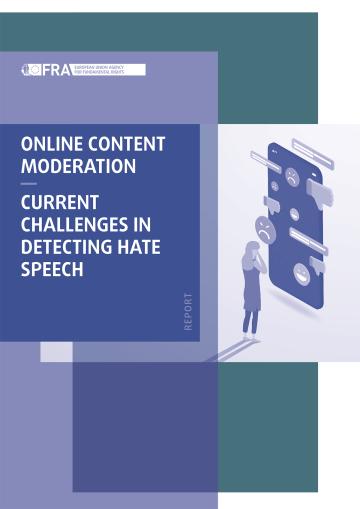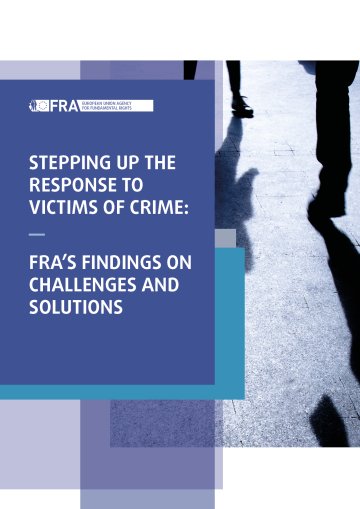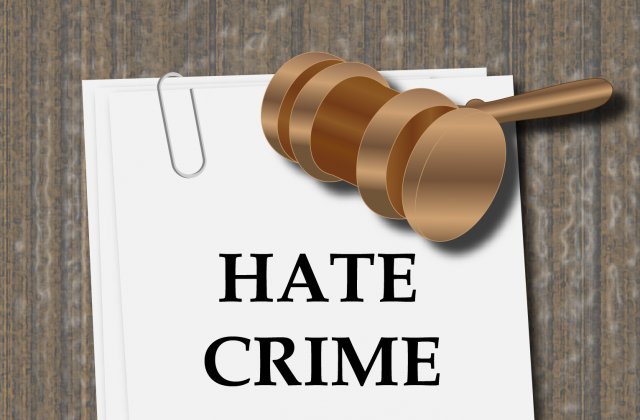The emergence of online platforms and social media has transformed modern communication. Online platforms provide many opportunities to express opinions and participate in public and political discussions. However, just as offline discussions are replicated or amplified online, so are expressions of hate. This is of increasing concern.
The EU has updated its laws and implemented policies to tackle illegal content online, such as through the Digital Services Act (DSA), to more effectively regulate online content, including hate speech. However, these changes are relatively recent. In addition, there are still uncertainties concerning how to better protect human rights online, with regard to combating online hate while protecting freedom of expression, and how to efficiently implement existing and newly developed laws.
This report aims to better understand whether standard tools to address online hate speech, hereafter referred to as ‘online hate’, are effective by looking at manifestations of online hate after social media platforms have applied their content moderation controls. This report presents findings covering four social media platforms – Telegram, X (formally Twitter), Reddit and YouTube. The platforms were selected based on their accessibility for research purposes, their popularity (i.e. audience reach) and the assumed magnitude of hate speech on them.
The report aims to achieve the following:
- It provides a targeted overview and analysis of online manifestations of misogyny and of hate against people of African descent, Jewish people and Roma. It is based on data collected on four online platforms, in four languages, and encompasses four EU Member States: Bulgaria, Germany, Italy and Sweden.
- Based on data analysis of social media posts to identify potential online hate that has already gone through the online platforms’ content moderation systems, the report offers a critical assessment of the limitations of online content moderation tools in detecting online hate against specific groups. At the same time, the report highlights these very challenges as they relate to researching and measuring online hate.
The study focuses specifically on online hate in social media posts targeted at women, people of African descent, Jews and Roma to explore the limits of online content moderation and the extent of hate speech against these groups. The study collected social media posts over 6 months, using specific keywords that could indicate potential online hate against these target groups.
In this report:
- Key findings and FRA opinions
- Challenge of online hate and how to research it
- Need to address online hate
- Online hate - Legal framework and definitions
- Scope and methodology
- How online hate manifests itself - A snapshot
- Characteristics of online hate
- Forms of harassment - Online hate directed at individuals
- Counterspeech
- Target groups and intersectionality
- Uncertainty and consistency in coding online hate
- Addressing online hate
- Addressing fundamental rights-compliant content moderation of online hate
- Understanding platforms' conduct in terms of safeguarding fundamental rights
- Ways forward
- Annex 1: Technical details of the methodoology











